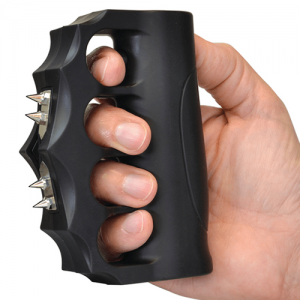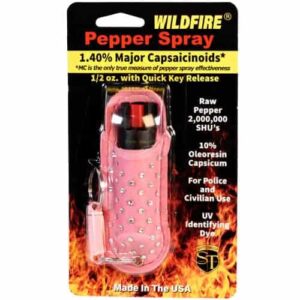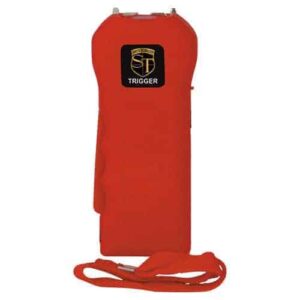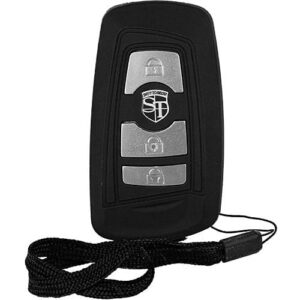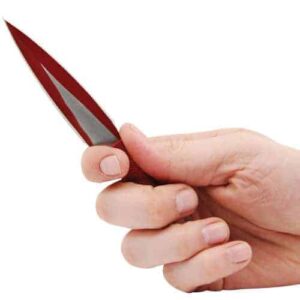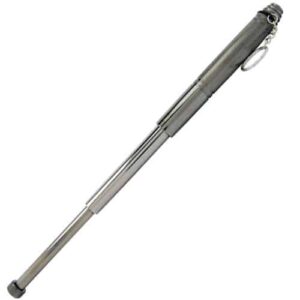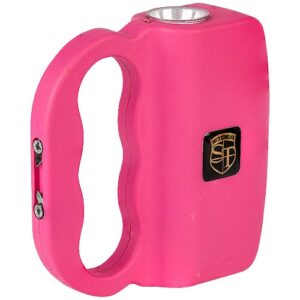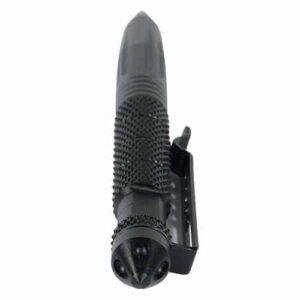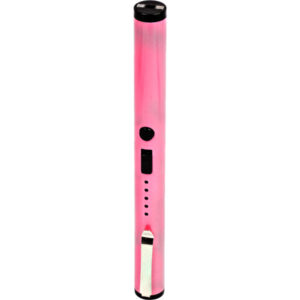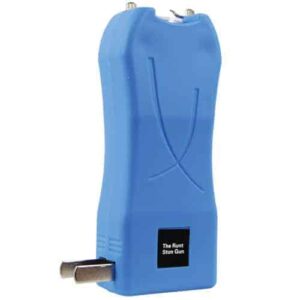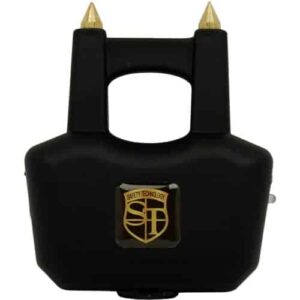Preparedness is your best friend when it comes to personal safety, and knowing your legal rights to self-defense is a crucial part of that equation. This article is just the guide you need to understand which self-defense weapons are legally permissible for you to carry. From pepper spray to stun guns, we’ll explore the different options available and the specific rules surrounding them, providing you with the knowledge you need to ensure your safety while abiding by the law. Get ready to empower yourself with this valuable information.
Table of Contents
ToggleLegal Self Defense Weapons
Everyone has a basic right to protect themselves, their property and their loved ones from danger, and self-defense is often the first line of protection. There are, however, restrictions and laws that govern the types of self-defense weapons one can lawfully own and use. It’s crucial to understand these legalities to avoid infringements and potential penalties.
Overview
Self-defense comes in many forms, from martial arts and evasion tactics to various personal protection devices. Legal self-defense weapons are items that you can carry and use to protect yourself, which the law recognizes as reasonable forms of personal protection.
Importance of Knowing Legal Self Defense Weapons
Knowledge of legal self-defense weapons is vital for your safety and innocence under the law. With this understanding, you can adequately equip yourself against potential threats without unknowingly breaking the law. It also ensures you can confidently use your chosen weapon if the need arises, knowing you have a legal right to do so.
Non-Lethal Self Defense Weapons
Non-lethal self-defense weapons are designed to deter or incapacitate an attacker without causing permanent harm. They are essential tools for self-protection, especially in situations where deadly force is unnecessary or could lead to serious legal repercussions.
Pepper Spray
Pepper spray, also known as OC spray, is one of the most common non-lethal self-defense options. It induces painful temporary blindness and difficulty breathing in its subjects, making it ideal for stopping an attacker in their tracks.
Tasers
Tasers, a brand of electroshock weapons, deliver a high-voltage shock that temporarily paralyzes the muscles, incapacitating an attacker. They have a range of up to 15 feet and often include a direct contact stun gun feature for close-quarters defense.
Stun Guns
Stun guns are self-defense devices that stun an attacker with a high voltage, low amperage shock. They require close contact to be effective and can quickly immobilize an attacker without causing permanent harm.
Personal Alarms
Personal alarms or panic alarms are devices that emit loud noises to scare away potential attackers and attract attention. They’re straightforward to use, often simply requiring a button to be pressed or a pin to be pulled.
Batons
Batons or expandable batons are used in personal defense for striking or jabbing an attacker. This form of non-lethal weapon requires some training to use effectively but they can be a powerful deterrent when wielded with confidence.
Lethal Self Defense Weapons
Lethal self-defense weapons are those designed to cause severe bodily harm or death. As such, their use is often regulated by stricter regulations and if misused, can result in criminal charges.
Firearms
Firearms are the most common lethal self-defense weapon. Different types of firearms have varying degrees of power and ease of use. It’s crucial to fully understand and follow the laws specific both to your area and to the type of firearm you possess.
Knives
Self-defense knives can come in many forms, from everyday pocket knives to purpose-made tactical knives. While knives are generally legal, they are subject to numerous laws that govern their size, type, and the way they are carried.
Swords
Although not a common choice for self-defense, swords are technically lethal weapons. However, due to their size and potential danger, laws regarding owning, carrying, and using a sword can be quite strict.
Crossbows
Crossbows, while often viewed more as sport or hunting equipment, can also serve as lethal self-defense weapons. Laws surrounding their use can be complex, and their practicality as a defensive weapon is often debated.
Bows and Arrows
As with crossbows, bows and arrows are usually associated with sport and hunting but can also be lethal when used for self-defense. Like all lethal weapons, they are tightly regulated and should be taken seriously.
State and Local Laws
State and local laws play a significant role in dictating which self-defense weapons are legally available to you. Therefore, before acquiring a weapon, it’s crucial to familiarize yourself with these laws.
Varying Legal Restrictions
Different jurisdictions have different laws surrounding self-defense weapons. What may be perfectly legal in one area might be strictly prohibited in another. Local law enforcement agencies will often provide information on legal restrictions.
Concealed Carry Permits
Many lethal and some non-lethal weapons require a concealed carry permit. The process for acquiring a permit varies widely by location, but often includes background checks, training requirements, and application fees.
Background Checks
When purchasing certain types of self-defense weapons, you may be required to undergo a background check. These checks are designed to prevent people with violent histories or serious criminal records from obtaining dangerous weapons.
Special Restrictions for Minors
Typically, minors face even stricter regulations, with many self-defense weapons entirely off-limits until they reach the age of majority. Adults can also face severe penalties for allowing minors to access their weapons.

Considerations for Choosing a Self Defense Weapon
There are several factors to consider when choosing a self-defense weapon, ensuring it’s effective, user-friendly, legal, and that you’re comfortable using it.
Effectiveness
Your self-defense weapon should be capable of stopping or deterring an attacker effectively. It’s essential to choose a weapon capable of adequately protecting you based on the likely threats in your environment.
Ease of Use
A self-defense weapon should be easy to use in high stress situations. Complex features or difficult operation could potentially make a weapon ineffective when you need it most.
Legal Limitations
The legal limitations that apply to your self-defense weapon depend on your location, age, and other factors. Always check with relevant authorities to ensure your weapon is legal.
Personal Comfort and Confidence
You should feel comfortable carrying and using your self-defense weapon. Without confidence in your ability to wield your weapon, it may be of little use during a crisis.
Training and Familiarity
A self-defense weapon is only as effective as your understanding of its operation and limitations. You need to know how and when to use it and what to expect when you do.
Proper Training
Proper training is essential to ensure you can operate your weapon safely and effectively. Many retailers and national organizations offer training courses for self-defense weapons.
Regular Practice
Regular practice using your self-defense weapon will increase your confidence and ability to use it in a crisis. It should become a familiar tool that you can rely on.
Understanding Laws and Regulations
Understanding the laws and regulations surrounding your self-defense weapon is as crucial as knowing how to use it. Ignorance of the law is not usually regarded as a valid defense in court.

Other Factors to Consider
Several other factors can influence the effectiveness and legality of a self-defense weapon, including environmental conditions, travel restrictions, public perception, and your personal safety plan.
Environmental Conditions
Environmental conditions can affect how well certain self-defense weapons work. For example, pepper spray might not be as effective in windy conditions, and stunning devices may be less reliable in the rain.
Travel Restrictions
Certain self-defense weapons may be prohibited on public transportation or in specific buildings. Always verify any travel restrictions before carrying your weapon in these areas.
Public Perception
The public perception of your self-defense weapon can influence how others react to it. In some cases, the visibility of certain weapons can deter potential attackers, while in other situations, it could alarm innocent bystanders.
Personal Safety Plan
Your personal safety plan defines the steps you’ll take in various threatening situations. Your self-defense weapon should be incorporated into this plan, ensuring you know exactly when and how to use it.
Alternatives to Weapons
While carrying a self-defense weapon can provide a certain level of physical security, it’s essential to remember that it’s just one component of a comprehensive self-defense plan.
Self-Defense Classes
Enrolling in self-defense classes can provide you with physical techniques to protect yourself without relying on a weapon. These classes often focus on developing awareness, assertiveness, verbal confrontation skills, safety strategies, and physical techniques.
Situational Awareness
Situational awareness involves being aware of your surroundings and understanding the potential threats in your environment. This practice alone can often deter potential attackers or allow you to avoid dangerous situations altogether.
Escape and Evasion Techniques
Escape and evasion techniques teach you how to get away from an attacker without engaging in physical conflict. These skills can be life-saving, especially when a self-defense weapon might not be immediately available.

Legal Penalties for Misuse
Misusing your self-defense weapon, even unintentionally, can lead to legal penalties such as fines, imprisonment, or both. It’s crucial to understand these laws and penalties, both to avoid them and to be aware of the consequences of misuse.
Unlawful Possession
Unlawfully possessing a self-defense weapon can lead to criminal charges. This might include carrying a weapon in a location where it’s prohibited, or possessing a weapon that’s illegal in your area.
Improper Use
Using your self-defense weapon improperly, such as brandishing it in a non-threatening situation or using excessive force, can also result in legal penalties.
Criminal Charges
Engaging in criminal activity using a self-defense weapon typically results in severe charges. Even in cases of valid self-defense, you may still face charges if you used excessive force or acted irresponsibly.
Civil Liability
Civil liability refers to potential lawsuits from another person as a result of your self-defense actions. Even if you’re acquitted of criminal charges in a self-defense case, you could still be sued in civil court.
Conclusion
Knowledge is Power
Your knowledge is your first resource in self-defense, and it can make the difference between life and death. Understanding your self-defense weapon, from how it works to when and how you should use it, as well as the laws that govern it, is essential to protect yourself effectively and within the parameters of the law.
Finding the Right Balance
Finding the right balance in self-defense is key. Ensure you know yourself, your abilities, and your weapon. Weigh the benefits against the potential legal ramifications, and always prioritize non-violent solutions when possible. It’s all about finding the right balance that keeps you safe within the confines of the law.



